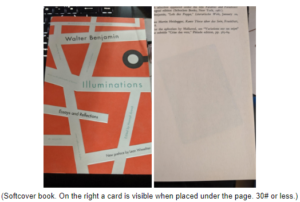Various, Meet Sundry
Hey, welcome back. Try as I might, I just can’t make the stuff I want to talk about today fit into a theme, so let’s just tuck in and see what we got.
- If you read my takes on this year’s Eisner nominations (and I promise, I’m going to talk about the Digital Comic/Webcomic nominees), you’ll recall that I was generally happy with the overabundance of great work recognized.
However.
I will say, at the remove of nearly a week, that it’s baffling that the nominations entirely failed to recognize two long-running, critically acclaimed and widely beloved series that wrapped up last year. I speak, naturally, of The Unbeatable Squirrel Girl (Ryan North, Erica Henderson, Derek Charm, Rico Renzi, Travis Lanham) and Giant Days (John Allison, Max Sarin, Whitney Cogar, Jim Campbell). Actually, that’s not quite true, as Campbell was nominated for Best Lettering, with Giant Days listed as one of ten titles he worked on. But still — tupping liberty.
That being said, Allison, Sarin, Cogar, and Campbell¹ kept the band together for Wicked Things (issue #2 due sometime in the future, now that we are gradually making our way into commercial resumption), so the voters will have a chance to make it up next year. Additionally, Allison’s been killing it on the Steeple extended story (wrapped today), with some news of what’s next:
I have more tales of Tredregyn to tell (“Secret Sentai” and “Showbusiness”), but I’m writing this six weeks in the past (April 29th), so I have no idea where they’ll appear, yet. Maybe the comics industry has come back to life. Maybe we are all living in caves. Hopefully I haven’t caught the covid. Awaiting my fate, I have had no choice to but to begin to draw another exclusive limited web-series event — NEMS — at destroyhistory.com. It begins on Monday June 15th.
Okay, 1: I have never in my life wanted to read anything based solely on a title as much as Secret Sentai, and B: Allison cognoscenti will recall that Destroy History is the short way to say The Further Adventures Of Shelley Winters In Time (her last adventure involved Hedy Lamarr and her WWII-era invention of spread spectrum coding), so bookmark it now so that you may dig in on Monday.
- There’s been a great deal of discussion about money in publishing in the past sevenday or so, particularly around the topics of who has it, who is offered it, and why most of seems to go to white people. But an ancillary discussion is being had — and keep in mind it was decided to talk about page rates on 1 June well before the world started down either the COVID suckhole or the Gods Dammit White People, BIPOC Have Had It With Your Shit uprising (2020 edition) — around money in comics and such.
It’s been pointed out that the racial disparities exist here as elsewhere (in terms of money offered and who gets to be the creators/subjects of stories), but also that comics pays a crapload less than prose does². This is for a whole host of reasons, and even if everything were made equitable (which won’t happen unless people talk about it and share their worth so others know what they can ask for), there is an economic limitation on comics that prose simply doesn’t have.
Paper. What looks good with words alone, and what looks good with words and pictures have vastly different cost bases. You don’t understand that side of publishing economics and neither do I, but fortunately somebody does, and his name is George. He tried to cut his experience-based knowledge down to tweet length, found it was impossible to do so, and slapped up a four and a half page explainer so that you can understand, too.
The costs of paper stock don’t make the lowballing, crappy WFH page rates, and racial disparities any more acceptable, but if people are going to fight for better pay — and they should! — having all the relevant info is a necessary first step. If nothing else, it’ll provide a quick intro to the kinds of paper that you don’t want to use on your next self-pub project, no matter how much it’ll save you.
SM20 Countdown for 10 June 2020:
2
_______________
¹ Which sounds like an accounting firm of high repute and moderate prices.
² Exception: prose author that dips their toes into comics; similarly, children’s books pay for shit, unless you are a famous person whose name goes on the cover in big letters, with the actual writer and artist’s names much smaller³.
³ Speaking of, a friend of mine was once offered a total of US$300 as WFH to write/illustrate a 24 page kiddie book so that an extremely rich (hefty fraction of billionaire would be my guess) multi-market celeb (music, fashion, film, modeling) could slap their name on it.
My friend said no, the celeb kept asking, my friend milked it for every possible extremely expensive lunch possible. Respect, and fuck that very rich celeb with the mansion and fancy cars and the three-hundo (which is only half as much as class money) offer without even the benefit of exposure. That’s right, it was a no-credit ghost job.

The above comments are owned by whoever posted them. The staff of Fleen are not responsible for them in any way.